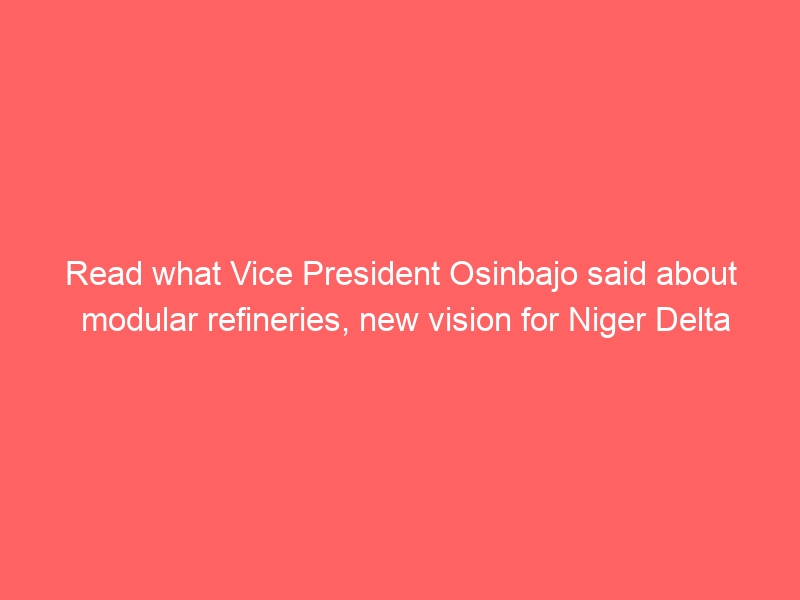Read what Vice President Osinbajo said about modular refineries, new vision for Niger Delta

Sign Up For Daily Newsletter
Be keep up! Get the latest breaking news delivered straight to your inbox.
By signing up, you agree to our Terms of Use and acknowledge the data practices in our Privacy Policy. You may unsubscribe at any time.
Stay Connected
- Advertisement -











